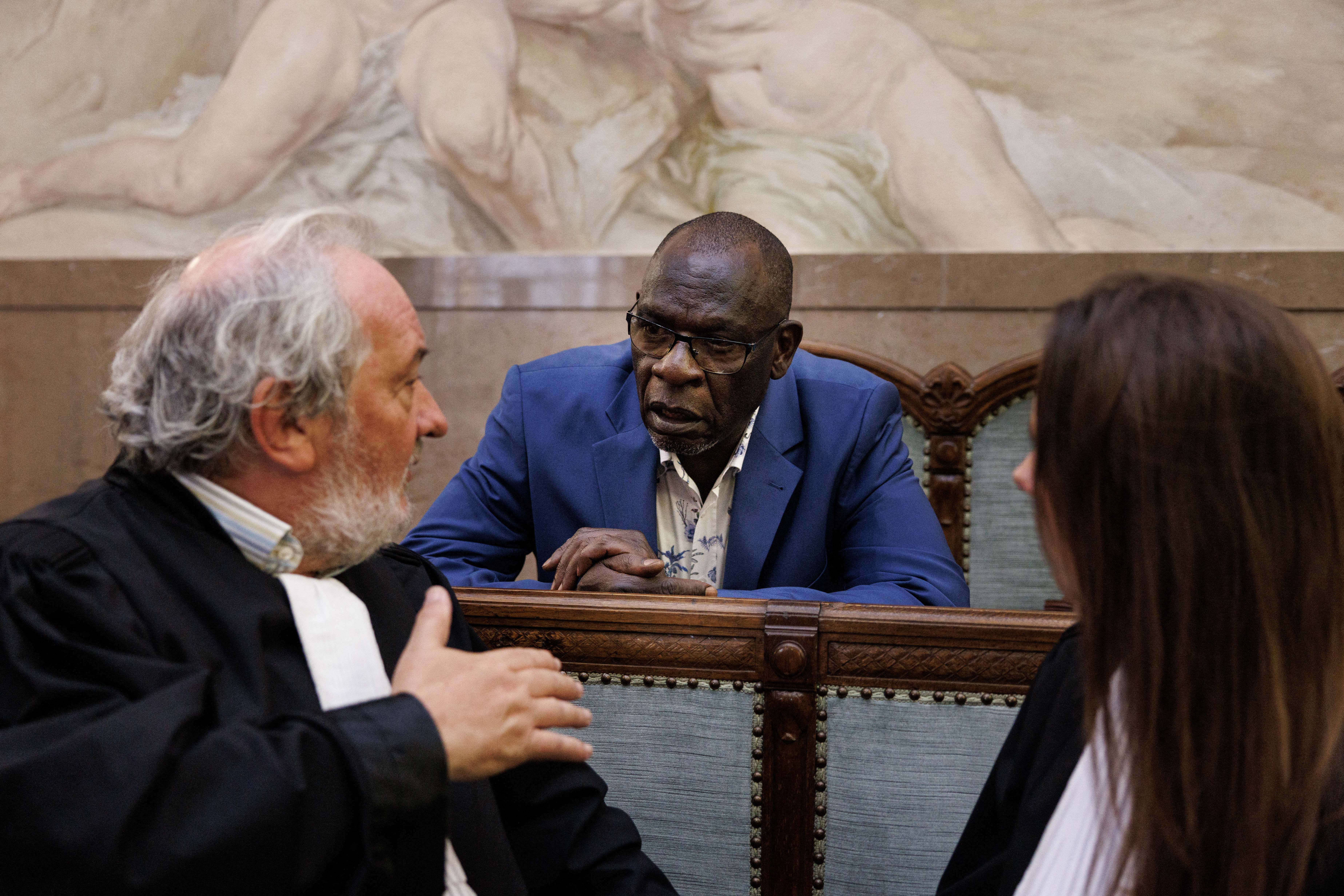Twahirwa and Basabosé found guilty of genocide and war crimes in Rwanda

A jury at the Brussels Assize Court has found Séraphin Twahirwa and Pierre Basabosé guilty of genocide and war crimes committed in Rwanda in 1994.
The jury, which delivered its verdict on Tuesday evening, found that the two Rwandan men committed multiple murders and attempted murders of Tutsis and moderate Hutus in Kigali between April and July 1994. They also found Twahirwa guilty of the rape of many Tutsi women.
Basabosé, 76, and Twahirwa, 65, live in Belgium and faced charges of genocide and war crimes. The federal prosecutor's office had requested that they be found guilty of at least 56 murders and at least 13 attempted murders committed during the 1994 genocide in Rwanda. The prosecution also charged Twahirwa with 12 counts of rape. The jury found them guilty of most, but not all, charges.
Involvement denied
Twahirwa was suspected of leading Hutu militiamen known as Interahamwe in Kigali, particularly in the Gikondo neighbourhood, during the Rwandan genocide. Basabosé was mainly suspected of supplying arms to the Interahamwe in Gikondo.
Basabosé, who has been diagnosed with dementia, was not questioned by the court. His lawyer, Jean Flamme, had pleaded for his acquittal, questioning the reliability of the testimony.
Twahirwa denied any involvement in the genocide, claiming that he had left Kigali as soon as the first massacres took place in early April 1994. His lawyers questioned the way the investigation had been conducted, claiming that witnesses had been "prepared" in Rwanda to incriminate the accused.
In its reasoning, the jury stated that "although Séraphin Twahirwa tried to conceal his participation in the genocide, his account did not stand up to the testimony of his Interahamwe, his wife, surviving victims and inhabitants of the Gikondo sector".
"It was he who decided which Tutsis were to be killed and which Tutsis were to be spared to be killed later"
The jury found that Twahirwa gathered his Interahamwe on the evening of 6 April 1994, immediately after the attack on the plane of then president Juvenal Habyarimana. "The actions of his men reflected his instructions," the jury found. "He gave the orders for the various attacks. It was he who decided which Tutsis were to be killed and which Tutsis were to be spared to be killed later."
The jury also insisted on Twahirwa's "determination". "He did not hesitate to kill his brother-in-law as well as children and babies by throwing them against a wall," the jury said.
On the numerous rapes of which he was found guilty, the jury noted that these crimes "went beyond Séraphin Twahirwa's sexual impulses, as he also physically harmed and humiliated the Tutsi women".
As evidence, the jury noted that it was no coincidence that some of the women were found "with a bullet between their legs". The rapes were an "attack on the fertility of Tutsi women and their social ties, given the deep taboo on rape" in Rwandan culture, the jury noted.
'Genocidal machine'
With regard to Pierre Basabosé, the jury noted that he "had considerable financial resources, which he used to finance a media outlet, Radio Télévision Libre des Mille Collines (RTLM), which incited hatred against the Tutsis". The jury also found that Basabosé had financed the Interahamwe in Gikondo, in particular "in their missions of espionage and assassination of Tutsis".
Basabosé was "at the heart of the genocidal machine"
This support was not only financial, the jury found, but also logistical. Basabosé made some of his vehicles available to the Interahamwe "so that they could carry out their punitive expeditions" and supplied them with weapons, the jurors said, basing their verdict on witness testimony.
Basabosé also "collaborated in the search for recruits" and "propagated a discourse of hatred against the Tutsi". He "condoned, even encouraged by his presence" the crimes committed in Gikondo, and he was "at the heart of the genocidal machine", even to the point of "assisting the genocidaires in their flight", the jury said.
The court has scheduled the sentencing debate for Wednesday at 14.00. Defence lawyers will present their closing arguments on Thursday at 9.00.
Séraphin Twahirwa (C) speaks with his lawyers at the start of the trial in Brussels on 9 October © PHOTO SIMON WOHLFAHRT / AFP